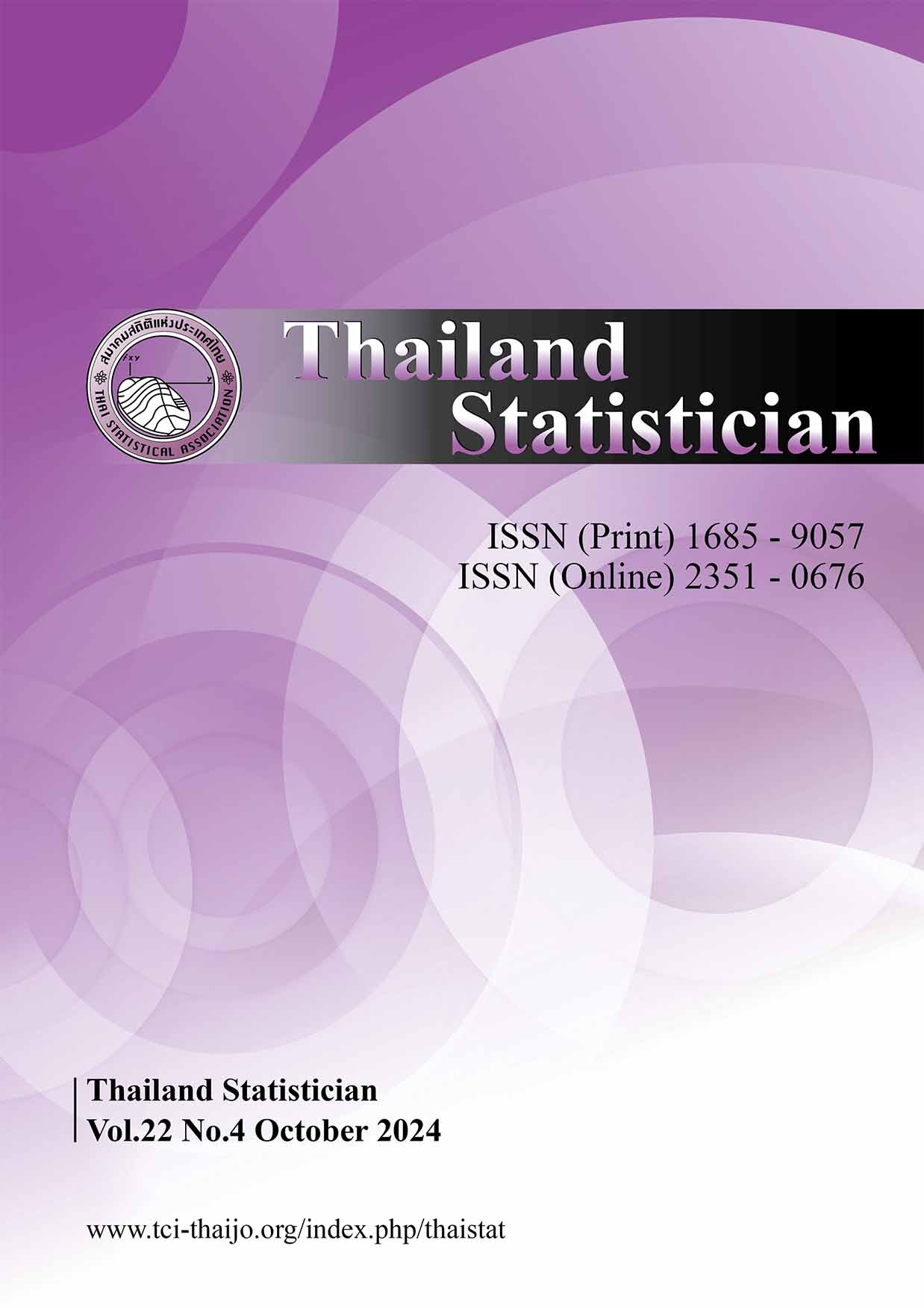Partial Bayes Estimation in a Normal Family
Keywords:
Bayesian inference, integrated Bayes risk, empirical BayesAbstract
Areas of Bayesian analysis became vast throughout several decades. Bayes estimation, empirical
and hierarchical Bayes estimation are important areas among them. In multi-parameter case, notion
of ‘Partial Bayes (PB) Estimation’ is introduced and in N(\theta , \sigma ^2), where parameters being unknown,
‘PB Estimation’ of θ is done by putting the estimator of σ2 obtained by some other methods. When
we do not have enough information regarding the joint parameters of the model of the variable and
when we are estimating one parameter in presence of others, such method may be used instead of
empirical and hierarchical methods when the information about their parameters are not sufficient.
Integrated Risk of the PB estimator and Bayes estimator derived under squared error loss function are
compared along with the classical estimator MLE through simulation technique. From the results, it
is found that PB estimator has almost same risk values as that of the Bayes estimator, whereas the risk
of MLE is higher compared to both of the estimator. For illustrative purpose, a real dataset is used to
apply this PB estimation technique. PB is appropriate name to describe. However, partial Bayes term
has been used in different context of Bayesian hierarchical model and meta analysis.
References
Aggarwal P. Bayes predictor of one-parameter exponential family type population mean under balanced loss function. Commun Stat Theory. 2006; 35(8):1397-1408.
Banerjee P, Seal B. Partial Bayes estimation of two parameter Gamma distribution under noninformative prior. Stat Optim Inf Comput [Internet]. 2021 [cited 2022 May 8]. Available from:
http://www.iapress.org/index.php/soic/article/view/1110.
Berger JO. Statistical decision theory and Bayesian analysis. New York: Springer Science & Business
Media; 2013.
Fabrizi E, Trivisano C. Bayesian estimation of log-normal means with finite quadratic expected loss.
Bayesian Anal. 2012; 7(4):975-996.
Ferguson TS. Mathematical statistics: A decision theoretic approach. New York and London: Academic press; 2014.
Greenland S. Bayesian perspectives for epidemiologic research: III. Bias analysis via missing-data
methods. Int J Epidemiol. 2009; 38(6):1662-1673.
Kim HJ. Bayesian estimation for skew normal distributions using data augmentation. Commun Stat
Appl Methods. 2005; 12(2):323-233.
MacLehose RF, Hamra GB. Applications of Bayesian methods to epidemiologic research. Curr Epidemiol Rep. 2014; 1(3):103-109.
Qiu Y, Zhang L, Liu C. Exact and efficient inference for partial Bayes problems. Electron J Stat.
; 12(2):4640-4668.
Ramos PL, Achcar JA, Moala FA, Ramos E, Louzada F. Bayesian analysis of the generalized gamma
distribution using non-informative priors. Statistics (Ber). 2017; 51(4):824-43.
Rikhtehgaran R, Kazemi I. Semi-parametric Bayesian estimation of mixed-effects models using the
multivariate skew-normal distribution. Comput Stat. 2013; 28(5):2007-2027.
Seal B, Hossain SJ. Bayes and minimax estimation of parameters of Markov transition matrix. ProbStat Forum. 2013; 6(10):107-115.
Sokal RR, Hunter PE. A morphometric analysis of DDT-resistant and non-resistant house fly strains.
Ann Entomol Soc Am. 1955; 48(6):499-507.
Xie M, Liu RY, Damaraju CV, Olson WH. Incorporating external information in analyses of clinical trials with binary outcomes. Ann Appl Stat. 2013; 7(1):342-368.
Downloads
Published
How to Cite
Issue
Section
License

This work is licensed under a Creative Commons Attribution-NonCommercial-NoDerivatives 4.0 International License.




